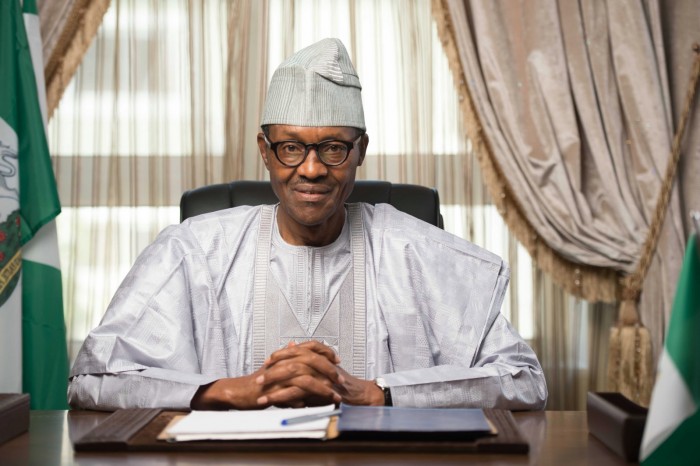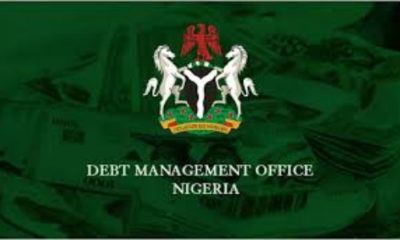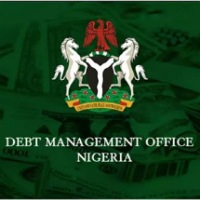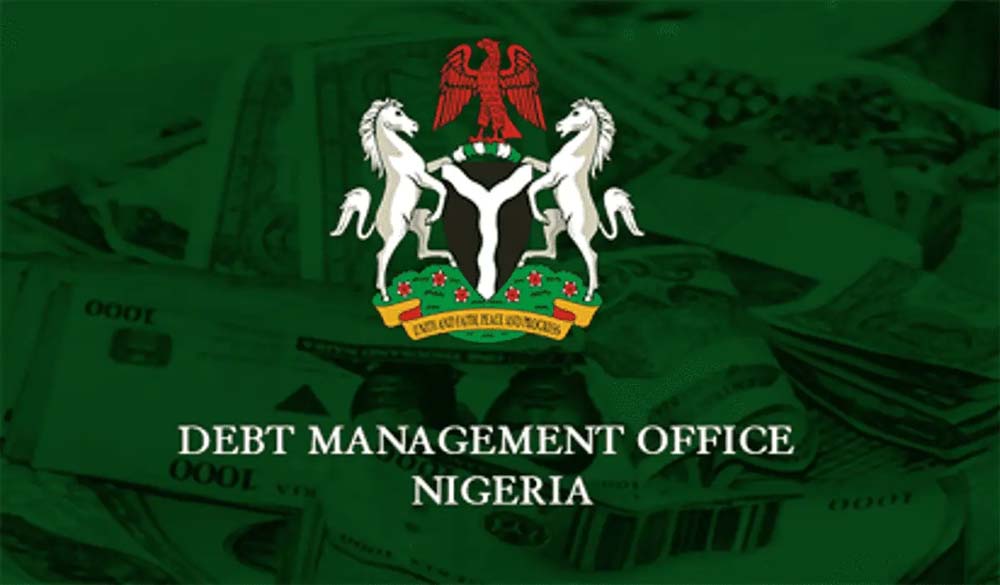Finance
Nigeria’s foreign debt portfolio hits $11bn – DMO

ABUJA – The Director-General, Debt Management Office, Dr. Abraham Nwankwo has disclosed that Nigeria’s external debt profile has risen to $11 billion as at last week as against the $ 9.4 billion recorded in March. Similarly, domestic debt profile was said to have risen to N11 trillion.
Nwankwo disclosed this in an interview with journalists in Kaduna on Friday shortly after declaring open a one-day enlightenment workshop with leaders of students’ unions from tertiary institutions.
Nwankwo, however, said the quantum of the debt did not really matter. He said the most important thing was how the resources were deployed to encourage economic growth, development, generate employment and reduce poverty.
According to him, the concern about debt is “whether you are in a position to pay back what you borrowed as at when due,” stressing that in the case of Nigeria, the debts remain sustainable.
He noted that the current global economic problems, particularly the collapse of oil prices, were having a significant impact on economies all over the world.
Nwankwo said, “because the Nigerian economy is very resilient and because the government is in control, Nigeria’s debts continue to remain sustainable.
“Presently Nigeria owes, domestically, about N11 trillion and externally, about $11 billion.The figures are the total of all debts in the federation. It includes external debts of the federal and all the state governments as well as the domestic debts of the federal government and all the state governments.
“Let me emphasise that what matters is not just the quantum, what is important is how these resources are deployed to encourage growth, development, generate employment and reduce poverty.
“It matters whether you are in a position to pay back what you borrowed as at when due and in the case of Nigeria, I want to assure you that Nigeria’s debt remains sustainable.
“Based on current global economic problems, particularly the collapse of oil prices, this is having significant impact on economies all over the world. Because the Nigerian economy is very resilient and because the government is in control, Nigeria’s debts continue to remained sustainable.”
Nwankwo commended the federal government and the Central Bank of Nigeria (CBN) for maintaining a healthy reserve and for stabilising the exchange rate in spite of the shock occasioned by the drastic drop in oil revenue.
He said Nigerians should be proud that they have a government, a CBN and an economic system that is sound, in spite of the shock we have.
He noted that other countries like Venezuela and Russia that had been in similar position had had their currencies devalued very rapidly in the first 30 days of the oil shock.
“But you can observe that it was until about three or four months later that the CBN had to do some little adjustments with the exchange rate.
“Nigerians should be proud that the economy is so resilient, that we have enough food for our population and that food prices, in spite of what has happened in the past seven months or more continues to be moderate.
“That shows that over the years, we have attempted to improve, to diversify the economy, to strengthen our agriculture and that is a source of inspiration for all of us,” he said.
He urged Nigerians to use “the opportunity of President Muhammadu Buhari’s change to do better than we did in the past by working hard in making sure that agriculture continues to expand and modernise so that we can have real food security.”
This Day-
Business
Nigeria pays US$4.9 billion on petrol subsidy in 2024- NNPCL
It was however noted by Biztellers.com.ng, that although subsidy is back in effect, the main reason for that is the increasingly weak state of the Naira and the country’s extreme dependence on products importation. Also unlike the previous subsidy era, where several oil marketers were getting free subsidy refunds for unverified product importation, this subsidy era is witnessing only one importer, the NNPCL, which in effect is the sole receiver of government subsidies.
Yemie ADEOYE
INSPITE of the official position of the Nigerian government that the controversial petrol subsidy is gone for good as announced by the President on assumption of office, the state owned Nigerian National Petroleum Corporation Limited, NNPCL has disclosed that petrol subsidy is still fully operational in Nigeria, although, under a different identity.
Umar Ajiya, Chief Financial Officer at the NNPCL, disclosed that it cost the company a staggering N7.8 trillion (US$4.9) to cover this price gap in the first seven months of 2024.
Rather than simply referring to these claims as subsidies, he stated that the company is merely managing the price difference in petrol imports on behalf of the federation, stressing that this should not be misconstrued as a return to subsidy payments.
![]() This revelation has reignited discussions on whether the NNPC is indirectly offering subsidies, a concept typically defined as selling a product below its cost price.
This revelation has reignited discussions on whether the NNPC is indirectly offering subsidies, a concept typically defined as selling a product below its cost price.
Documents reviewed by Biztellers.com.ng showed that the term “subsidy” was used extensively in official correspondence between the NNPCL and the presidency, particularly in reference to the “shortfall.”
Recall that President Bola Tinubu reportedly approved NNPC’s request to utilize the 2023 final dividends due to the federation to offset these costs.
However, during a media briefing on Monday about the company’s 2023 audited financial statements, Ajiya refuted claims that the NNPC is involved in any subsidy scheme.
Ajiya further disclosed that the Nigerian government owes the NNPC N7.8 trillion ($4.9 billion) in subsidy-related debts for the period from January to July 2024.
In furtherance of his clarification to the News Agency of Nigeria (NAN), Ajiya insisted that no subsidy payments have been made to any marketer in the last nine years, citing the NNPC’s role as the sole importer of petrol under supply contracts.
He said, “In the last eight to nine years, NNPC Ltd. has not paid anyone a dime as a subsidy; no kobo has been disbursed by NNPC Ltd. in the name of subsidy. No marketer has received any payment from us for subsidy.”
“What has been happening is that we have been importing PMS, which has been landing at a specific cost price, and the government tells us to sell it at half price. So the difference between the landing price and that half price is a shortfall.
“And the deal is between the Federation and NNPC Ltd., to reconcile, sometimes they give us money, so there is no money exchanging hands with any marketer in the name of subsidy.”
Ajiya remained silent on how much of the $4.9 billion could have been remitted to the federation account if the NNPC had not been covering the “shortfall.”
It was however noted by Biztellers.com.ng, that although subsidy is back in effect, the main reason for that is the increasingly weak state of the Naira and the country’s extreme dependence on products importation. Also unlike the previous subsidy era, where several oil marketers were getting free subsidy refunds for unverified product importation, this subsidy era is witnessing only one importer, the NNPCL, which in effect is the sole receiver of government subsidies.
Banking
CBN Denies Currency Devaluation

The Central Bank of Nigeria (CBN) has refuted claims of devaluing the.
Earlier reports suggested that the CBN had devalued the Naira, lowering its exchange rate from N631 to the dollar, compared to the previous day’s rate of N461.60 at the Importers and Exporters (I&E) window.
However, the Central Bank of Nigeria (CBN) released a statement on Thursday through its Acting Head of Corporate Communications, Dr. Isa Abdulmumin, categorizing the report as false information.
In the statement titled ‘CBN Has Not Devalued The Naira’, he said the attention of the apex bank was drawn to the news report by an Abuja based newspaper edition of June 1, 2023, titled “CB Devalues Naira To 630/51”.
However, the CBN stated categorically that the news report was replete with outright FALSEHOODS and destabilizing innuendos, ‘reflecting potentially willful ignorance of the said medium as to the workings of the Nigerian Foreign Exchange Market.’
“For the avoidance of doubt, the exchange rate at the Investors’ & Exporters (I&E) window traded this morning (June 1, 2023) at N465/USS1 and has been stable around this rate for a while.
“The public is hereby advised to ignore the news report by Daily Trust in its entirety, as it is speculative and calculated at causing panic in the market,” the CBN spokesman added.
He, therefore, advised media practitioners to verify their facts from the Central Bank of Nigeria before publishing in order not to misinform the public.
Banking
BREAKING: CBN Increases Interest Rate By 0.5%

The interest rate in Nigeria has been raised to 18.5 percent, up by 0.5 percent, from 18 percent where it was pegged in March 2023.
The Central Banks of Nigeria’s (CBN) Monetary Policy Committee (MPC) resolved to this effect at its third meeting of 2023 in Abuja, on Wednesday.
Governor, CBN, Godwin Emefiele, made the disclosure in the communiqué of the MPC’s meeting, thereafter.
While engaging the media at the end of the two-day meeting, Emefiele, said the committee voted to keep the asymmetric corridor at +100 and -700 basis points around the MPR.
In the view of the MPC, rising inflation rate is traceable to the high energy cost and challenges around the supply chain, among others, which lie outside the corridors of the CBN.
Emefiele said, “The current trend in price development would continue to be monitored by the bank with greater collaboration with fiscal authority to address the drivers of inflation.”
Biztellers reports that the CBN had effected six consecutive interest rate increases, which has seen the rate move from 11.5 percent in March 2022 to 18.5 percent in May 2023.





















